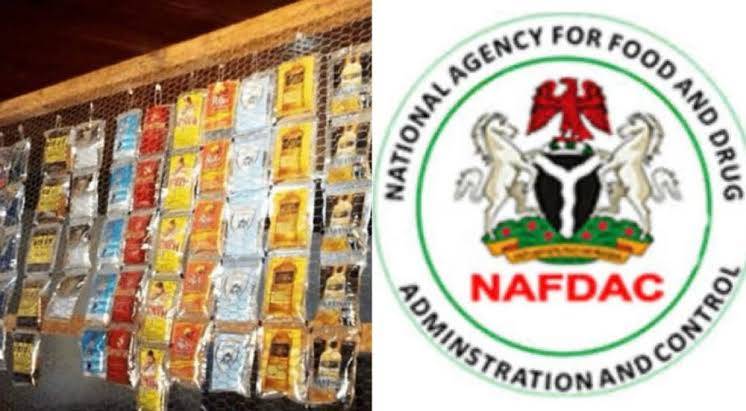By Segun Ayobolu
Citing the historian, Arnold Toynbee, in the first part of this piece, we contended that crises can be utilized as an opportunity to respond to a challenge that can help propel a human community further along the path of progress and development. In this regard, for instance, colonialism in Africa was a challenge of oppression and exploitation that elicited a response in nationalist struggles that resulted in the liberation of former colonized and dehumanized territories. Again, the unjust annulment by the military of the June 12, 1993, presidential election in Nigeria won by the late Chief MKO Abiola was a challenge that engendered the response of resistance by elements of civil society to continued military
Last week, the President demonstrated his sensitivity to the deleterious existential conditions in which the vast majority of Nigerians live since the removal of the fuel subsidy and parallel exchange rate mergers, when he personally attended the National Council of States (NCS) meeting as a special guest and mobilized all governors to collaborate with the federal government in a joint effort to tackle the current food crisis in the country.
The choice that stares the nation squarely in the face is either to complain and lament ceaselessly about the current astronomical cost of staple food items in the country such as garri, yams, rice, beans, beef, poultry, eggs, vegetables, tomatoes, pepper, etc or take urgent steps to begin to tap the abandoned potentials of our agricultural sector to produce abundant food to feed ourselves and also serve as a basis for agro-allied industrialization. Of course, it is the leaders who can take the initiative to achieve this objective as the President and many governors are already doing. However, it will require more than mere resolutions or good intentions to achieve a revolution in agricultural productivity in Nigeria.
Rather, those in the position to do so must have well-conceptualized and efficiently implemented policies to actualize this objective. The federal government has made humongous amounts available to state governments to procure grains and make other palliatives available to cushion the severe hunger in the land. However, the efficiency, transparency and sense of urgency, and mission with which governors have utilized these resources to attain the desired ends differ with huge variations from state to state.
The widespread perception is that a substantial chunk of these palliative funds in many states end up being misappropriated by unscrupulous officials and that when foodstuffs are made available to members of the public at all, they are channeled to political partisans or those with connections to high state officials. Government policy at all levels must most certainly begin to move from the provision of palliatives to substantially boosting domestic food productivity to bring down food prices.
It is important at this point for the National Council on Agriculture comprising the Minister and Minister of State of Agriculture, State Commissioners of agriculture, national and state parastatals as well as other stakeholders in the agriculture value chain sectors to hold an emergency meeting to chart an urgent path to agricultural self-sufficiency in the country. This will necessarily entail decisively addressing the security challenges that have kept large numbers of farmers away from their farms in substantial agricultural swathes of the country. If the complications arising from the ongoing exceedingly slow effort to actualize state police will prove too complex to address in the short run, the PBAT administration should fast-track its plan enunciated during the campaigns to establish well-armed and equipped forest rangers to safeguard our vast forests and expansive farmlands.
One paradox of the food availability crisis in Nigeria is that, despite the fragile security situation, substantial amounts of food produced on farms in parts of the country get spoilt due to difficulties in transporting them to urban markets. This is not a new problem. Decades ago, in one of his publications, Chief Obafemi Awolowo noted that “enormous waste and artificial scarcity of food products occur, from time to time, simply because we have no modern storage, processing, transport, and marketing facilities to deal with them in and out of season. This ill must be corrected”. It is inexcusable that this scenario still obtains over six decades after independence. Our state governments, particularly those that are potentially viable but dormant agricultural zones, should prioritize rural-urban roads, rural water and electrification, and rural as well as urban agricultural storage facilities over urban flyovers and other essentially vanity projects.
However, allocating humongous amounts to agricultural revitalization cannot achieve the desired objectives if the sector remains largely unorganized and pre-modern for the highest number of our farmers. Here again, Awolowo, whose administration in the Western Region in the first republic ran a vibrant and prosperous agricultural sector has wise words of admonition which are still relevant to our situation today. According to him, “The state governments should take immediate steps to mobilize and organize our farmers into Cooperative Societies throughout the country. A Cooperative Unit of between 100 and 200 practicing farmers, depending on the type of crops to be cultivated, should be the optimum. In this regard, it must be constantly borne in mind that the individual farmer, except a rich landowner, is not a viable proposition. Secondly, each state government should provide the cooperating farmers with areas of farmland that are adequate for the fulfillment of their aims and objects. Thirdly, revenue should be allocated to the states in such a manner as to enable each of them to give massive financial and technical assistance to cooperating farmers who must, of course, register their organizations as limited liability corporations under the Cooperative Law of the state”.
If we utilize the present food crisis as an opportunity to respond to the challenge of hunger and achieve not only food availability and affordability, we can also emerge as a major food exporter thus earning external revenue and reducing pressure on our national currency. Apart from the agricultural sector, President Tinubu’s recent Executive Order suspending import duties and Value-Added Tax on crucial medical imports has also been praised by stakeholders in the sector as being capable of helping to boost local production of drugs and other healthcare products thus bringing down current high medical costs. This is clearly another example of turning a crisis into an opportunity to respond appropriately to a challenge and recording progress in a sector critical to the general well-being of the citizenry.
In a report on Thursday, this newspaper’s Associate Editor, Adekunle Yusuf, quoted the Director-General of the Nigeria Employers Consultative Association (NECA), Mr. Adewale-Smatt Ayorinde as commending the initiative of introducing zero tariffs, excise duties, and VAT on specific pharmaceutical raw materials and specialized machinery”. According to the NECA DG, “This sector can now breathe…The Executive Order comes at a time when local pharmaceutical companies are grappling with an acute shortage of productive raw materials, high production costs, and low output due to the high cost of importing productive machinery and other input materials”.
Still on the issue of economic crisis as challenge, response, and opportunity for progress, the Director-General of the Manufacturers Association of Nigeria (MAN), Mr Segun Ajayi-Kadir, was quoted by a national newspaper on Monday as stating that the recent exit of some multinational companies from Nigeria offers a golden opportunity for homegrown manufacturers to thrive in the country with proper government empowerment.
According to the report in the Vanguard, “Ajayi-Kadir noted in a media chat that the apparent setbacks suffered due to the exit of the multinationals could be turned into an opportunity by placing the spotlight on homegrown manufacturers by the government empowering the domestic manufacturing sector. He stated: “I think there is a strong lesson to be learned here. The big ones leaving are the multinationals, which should send a clear signal to the government. We need to be strategic in what we promote. He is unlikely to go anywhere if you have a challenged local manufacturer. That is why we say foreign direct investment is excellent but it should come secondary to empowering the local investor, the existing manufacturers, because that is what is enduring”.
Over three decades ago, as one of the guest speakers at the First Obafemi Awolowo Foundation Dialogue, the renowned economist, the late Professor Pius Okigbo, citing the experience of Biafra during the civil war, stressed the capacity of crisis to create the requisite opportunity for Nigeria to achieve the technological breakthrough imperative for national economic transformation and development.
In his words on that occasion, “Why do I seem so confident that Nigeria is capable of producing the technological change required to propel the country into the next century? I am heartened by the fact that it has been done before. The Nigerian civil war proved beyond doubt that with determination and a conducive environment, the Nigerian can be induced to recreate a technological civilization. The “Biafran” scientific community was able to develop entirely out of pure local materials, weaponry that included anti-aircraft rockets, mortar bombs, land mines, tanks and armoured troop carriers, food substitutes involving the use of hitherto unused plants and crops”.
Continuing, Professor Okigbo said that Biafran scientists “succeeded in building out of entirely locally fabricated materials a giant petroleum refining facility and thereby made the technology so diffuse and more universally understood and applied than anywhere else in the world. They installed an air traffic control on wheels for use in an airport utilized only in the hours of darkness. Yet, save the airport of Johannesburg, that airport was able to handle more flights in those few dark hours per night than any other airport in Africa operating twenty-four hours of the day. These are solid technological achievements started and learned in less than three years of wartime…The conclusion is inescapable that for our innovative genius to flourish, it is, perhaps, necessary to recreate a synthetic crisis or emergency atmosphere”.
Due to no fault of its own but largely to inherited challenges, Nigeria confronts today, under the PBAT administration, a situation that is the economic equivalent of warfare. That crisis can propel us to rise to the occasion and break the chain, particularly of technological dependency but, among other imperative factors, the Tinubu administration must create the requisite conditions for the scientific, intellectual, and technological communities to be appropriately remunerated, motivated and respected to lead the charge.














